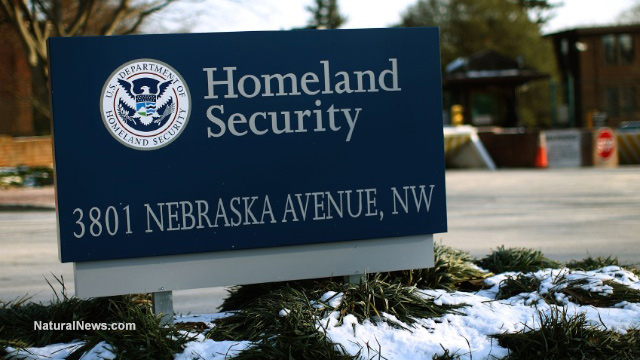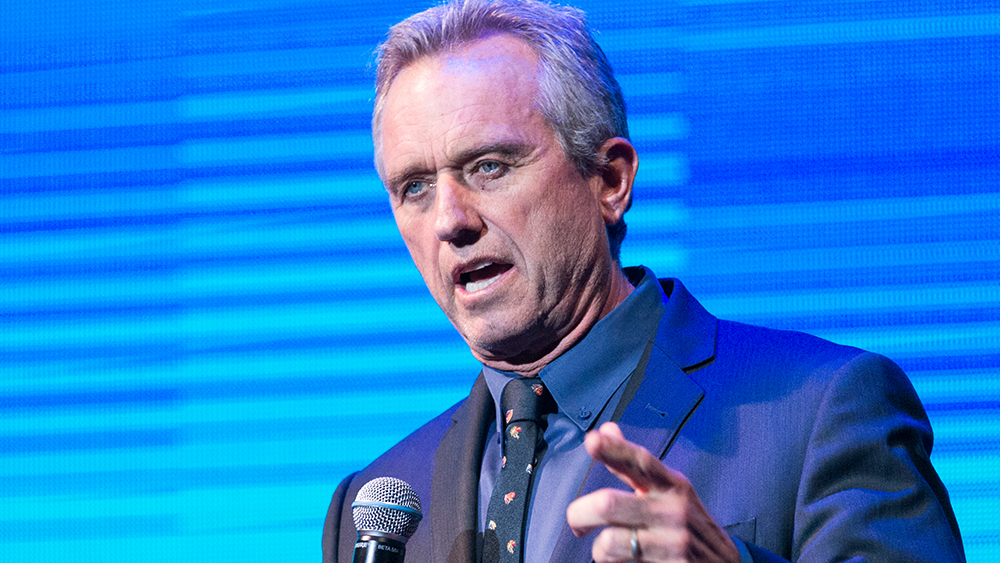NHS receives $26.68M budget to roll out AI and automation technologies in British healthcare system that make it easier to TRACK DOWN people
07/10/2023 / By Laura Harris

British Health and Social Care Secretary Steve Barclay has announced a £21 million ($26.68M) fund to provide the National Health Service (NHS) with the most advanced artificial intelligence (AI) technology and robotic process automation. The fund seeks to enhance patient diagnosis and treatment by equipping NHS staff with advanced AI imaging and decision support tools.
Prime Minister Rishi Sunak, backed by the Conservative Party, believes these reforms will make the NHS “fit for the future” and improve the efficiency of the socialized healthcare system. NHS Trusts can apply for the AI Diagnostic Fund to integrate these tools, which will aid in the prompt diagnosis of conditions like cancer, strokes and heart conditions.
The implementation of AI and automation is expected to facilitate different aspects of the NHS, including scheduling doctor appointments, organizing surgeries, transcribing doctor’s notes and even aiding in the diagnosis of illnesses like cancer. Barclay envisions AI reducing the workload, enhancing productivity and allowing healthcare professionals to focus more on patient care.
One of the key initiatives highlighted in the announcement is the commitment to expand the AI stroke diagnosis technology to cover 100 percent of stroke networks by the end of 2023. This expansion seeks to improve the treatment outcomes of thousands of stroke patients by ensuring faster and more accurate diagnoses.
The AI Diagnostic Fund will specifically focus on using AI tools in analyzing chest X-rays, the most commonly used tool for diagnosing lung cancer, the leading cause of cancer-related deaths in the United Kingdom. With over 600,000 chest X-rays conducted monthly in England, the deployment of diagnostic AI tools across more NHS Trusts will aid clinicians in diagnosing cancer patients earlier.
Mass migration drives increase in patient numbers, prompting the integration of AI and automation technologies into NHS
The integration of AI and automation technologies into the NHS seeks to address the long waiting lists and strains caused by migration.
Back in 2018, the NHS in New England grappled with a looming collapse as the state-run healthcare system struggles to cope with the increasing demands of a sick and dying population. That situation led to the decision of the state officials to instruct hospitals across the country to put a hold on non-urgent healthcare services and prioritize emergency cases.
In 2019, 55,000 scheduled operations were postponed as England’s health system enters a full rationing mode. The decision came from a severe shortage of hospital beds and staff. The NHS was overwhelmed and unable to accommodate the increase in patient burden.
Additionally, thousands of patients in England faced the grim reality of waiting in line for emergency room visits, while countless others were rejected. (Related: Hospital patients in England have to wait up to NINE MONTHS before they get discharged.)
One of the driving factors behind the NHS’s need for innovation is the strain caused by mass migration and the subsequent increase in patient numbers.
As Britain’s largest employer and one of the biggest employers globally, the NHS has found it challenging to cope with the demand for its services. Furthermore, the reliance on foreign staff has been worsened by the government’s failure to train local doctors and nurses.
As the nation’s healthcare sector embraces these technological advancements, it remains to be seen how AI will transform healthcare delivery and reshape the workforce within the NHS.
Watch David Crabtree slam the former U.K. health secretary’s handling of the pandemic as “not fit for purpose.”
More related stories:
UK’s NHS to open hospital databases to American spy-tech firm Palantir.
New update to UK NHS tracking app turns it into a VACCINE PASSPORT.
England’s National Health Service in trouble, services may soon be CLOSED to new patients.
Sources include:
Submit a correction >>
Tagged Under:
AI technology, big government, computing, conspiracy, cyber war, Glitch, health care, health coverage, health freedom, hospitals, information sharing, information technology, National Health Service, robotics, socialized medicine, United Kingdom, universal healthcare
This article may contain statements that reflect the opinion of the author
RECENT NEWS & ARTICLES
COPYRIGHT © 2018 OPENBORDERS.NEWS
All content posted on this site is protected under Free Speech. OpenBorders.news is not responsible for content written by contributing authors. The information on this site is provided for educational and entertainment purposes only. It is not intended as a substitute for professional advice of any kind. OpenBorders.news assumes no responsibility for the use or misuse of this material. All trademarks, registered trademarks and service marks mentioned on this site are the property of their respective owners.



















